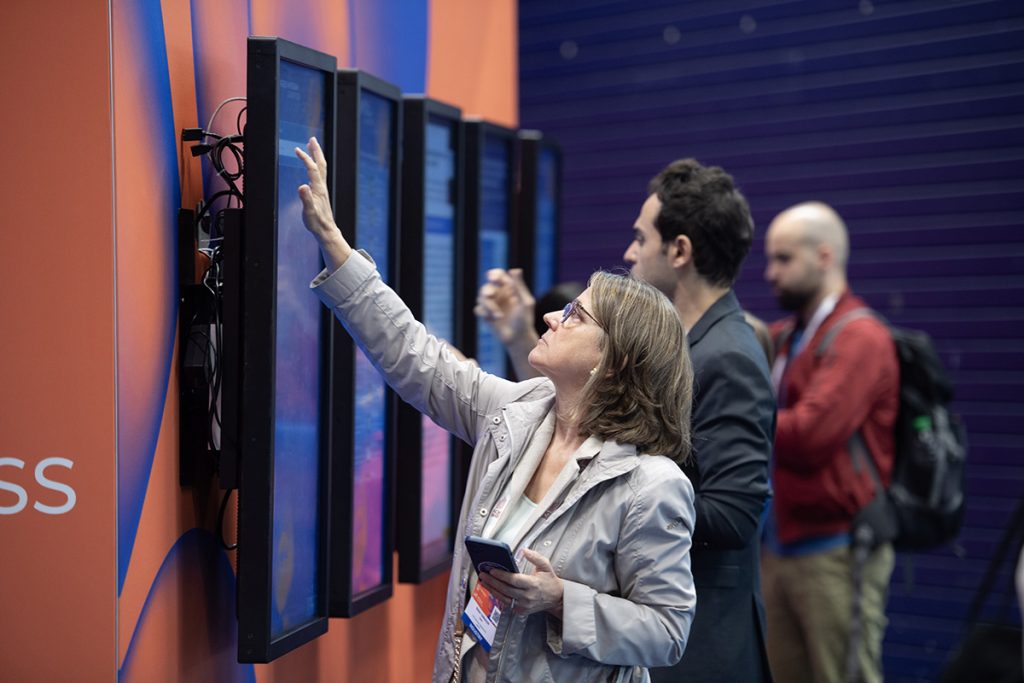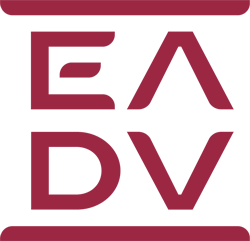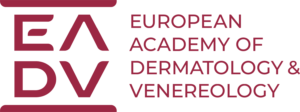EADV Symposium Abstracts
DEADLINE EXTENDED
SUBMIT BY 6 18 FEBRUARY 2025
The EADV Symposium provides a valuable platform to showcase your research globally, gaining visibility among key opinion leaders.
Abstract submissions
Multiple abstracts are accepted and may be chosen for an oral free communication presentation or an e-poster, contributing to the extensive scientific programme.
Abstract submission closed
DEADLINE EXTENDED
- Submissions opening 11 Dec 2024
- Submissions closing 6 18 February 2025
- Abstract evaluation notification 8 April 2025


Preparation of your abstract
- Abstracts must be submitted in English. A “blind” selection process will be used.
- No identifying features such as names of hospitals, medical schools, clinics or cities may be listed in the title or text of the abstract. Do not include the names of authors either. Their names and affiliations (institutions) will be registered separately when submitting the abstract online.
- The title should not be written entirely in capital letters.
- The size of the abstract is limited to 3,000 characters.
- The submission program will automatically calculate the size of your abstract and will not allow submissions that do not fit in the size requirements.
- Tables and figures (graphs) are allowed and they are not taken into consideration for the character count. On the other hand, pictures of patients and body parts are NOT allowed. Abstract containing pictures will be rejected.
- In order to be able to submit your abstract you must use the template downloadable on the submission platform.
- Check spelling and grammar carefully. Direct reproduction from your electronically submitted abstract text means that any errors in spelling, grammar or scientific data will be reproduced as submitted.
- Use generic names. The use of commercial drug names, brands and registered trademarks are strictly prohibited. Drugs should be referred to by the active substance or pharmacological designation.
- No mention of pharmaceutical company names should be included in the abstract.
The authors should specify if they prefer their submission to be considered for:
- e-Poster presentation only
- Oral presentation only
If you submit your abstract as “Oral presentation” and it does not get selected for one of the Free Communication sessions, you will still have the possibility to submit an e-poster (if the abstract is considered above the threshold of acceptance by the reviewers).
Evaluation and scoring
The evaluation and scoring of the abstract (acceptance as poster or as oral communication, or rejection) will be made according to a number of criteria, including:
- Is the content interesting, informative, novel or important?
- Are the methods valid, the results relevant and the conclusions justified by the data?
- Is the data presented with clarity and with appropriate structure?
- Is the text written according to proper English grammar and syntactic style?
Copyright and publication of abstracts
Submission of an abstract implies that it has been approved by all listed authors.
The Scientific Programming Committee reserves the right to make the final decision concerning the form of presentation.
As part of the submission, the author grants EADV the exclusive right to first publish the abstract, and thereafter a non-exclusive right to publish, reproduce, distribute, display and store the abstract worldwide in all forms (including on the EADV website), formats and media now known or as developed in the future, including print, electronic and digital forms. For the avoidance of doubt, “electronic and digital forms” shall include but shall not be limited to databases, USB and forms accessible via electronic and digital networks, wireless transmission and communication systems. The author also grants EADV the exclusive right to retain income resulting from the above-mentioned publications by EADV. No fee shall be paid to the author by EADV for the license granted herein. The author will retain copyright of his or her abstract, including the pertaining moral rights. However, the author shall only reuse, reproduce or post the abstract with acknowledgment to the initial and first publication or presentation at an EADV event, and therefore reference the name of the EADV event and the date.
The License of Copyright Use between EADV and the author is governed and construed in accordance with the laws of Switzerland.
Accepted abstracts will be published here.
EADV Symposium 2025 - Media & Embargo Policy
Please see the below extract from the Symposium 2025 Media & Embargo Policy:
Every abstract author and meeting attendee, whether from the media, companies, institutions, organisations, universities, investment advisors, or any other category, must adhere to the embargo policy.
Embargoed materials include – but are not limited to – original journal articles, abstracts submitted to the EADV Events, abstracts from scientific meetings, written news releases, audio news releases, video news releases, interviews, slides, and any other materials associated with the scientific information being presented or published.
Embargoed materials, as well as results and information related to sessions at any meeting or event organised by EADV, are strictly confidential and cannot be disclosed in any manner or for any purpose before the lifting of the embargo by EADV.
Breaking an EADV embargo by any author, media outlet, press representative, member of staff or any third party acting on behalf of and/or under the authority of any media outlet or press representative is a contractual breach. The person/entity who released the information (i.e. the press representative who wrote the story/conducted the interview, etc.) will be held accountable and subjected to the penalties.
Prior publication
Embargo date and time
All abstracts:
The embargo is lifted at 11:00 CEST on 22 May 2025. Abstracts will be published on the EADV Event platform and accessible to registered participants.
Industry abstracts:
The embargo is lifted at 11:00 CEST on 22 May 2025. Abstracts will be published on the EADV Event platform and accessible to registered participants.
Before this date, only top-line content (no results or data) can be disclosed to announce the session content, learning outcomes and speakers.
FAQs
Is there a cost for submission?
There are no costs for abstract submission.
Does the submitter need to be registered to the event?
The submitter does not need to be registered to the event
Does the submitter have to be an author?
The submitter does not have to be an author of the abstract being submitted.
Are multiple abstracts permitted to be submitted?
Yes. There is no limit to the number of abstracts that one can submit.
Who will receive the abstract acceptance notification? (submitter vs presenter)
The submitter, and email address used by the submitter, will receive the notification.
Does the presenting author have to be the first author?
It is not necessary for the presenting author to be the first author. Anyone from the authors list can present the abstract.
Can the presenting author act as a presenter for multiple abstracts?
Yes, the presenting author act as a presenter for multiple abstracts
Is there a limit to the number of authors for one abstract?
There is no limit to the number of authors on an abstract.
Is there a title word/character limit?
There are no word or character limits for the abstract title.
Are encores and/or adaptations permitted?
Yes, encores and/or adaptations are permitted.
Are QR codes permitted on posters?
Yes, QR codes are permitted on posters.
Is there an Embargo Policy for abstracts or e-posters?
The content of the abstracts accepted as e-posters will be under embargo until the first day of the EADV event. Content of abstracts accepted as oral presentations will be under embargo until the date and time of the presentation of the abstract.
This does not apply to encores.
Click here to read the full Embargo Policy.
Is there a withdrawal date?
Abstracts can be withdrawn until 4 weeks before the event ie. Tuesday 22 April 2025.

